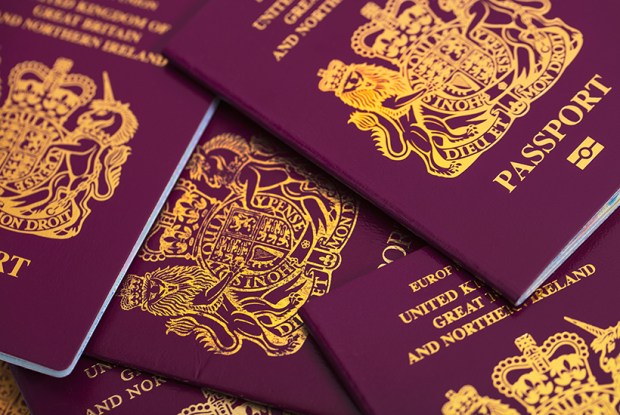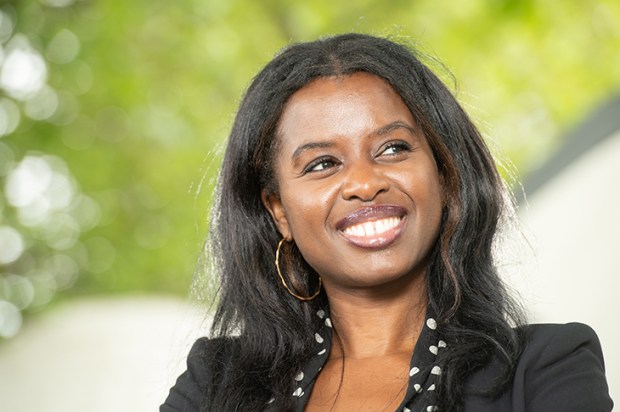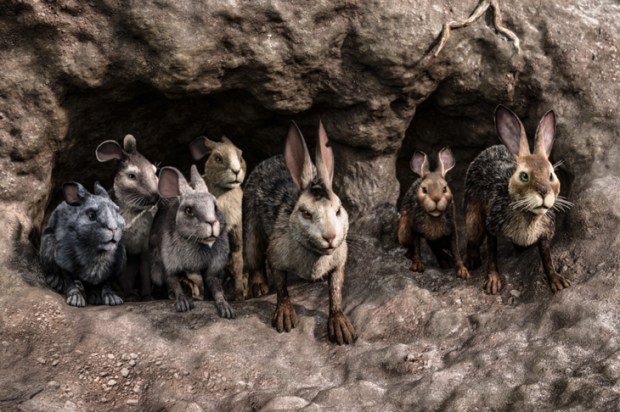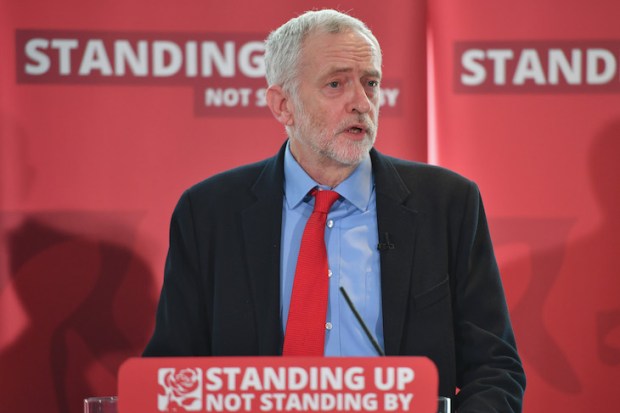We live in a recriminatory age, one in which we are only ever a step away from the cringing, self-abnegating apology. Take the case of BBC Newsnight’s latest appointee, as economics editor, a chap called Duncan Weldon. Duncan is doing the tail between the legs thing right now, desperately attempting to excise part of his past in case it puts paid to his promising career in a fusillade of political accusations and an appalled reaction from the general public. The problem is, in his younger days, it seems Duncan worked as an adviser for the deputy leader of the Labour party, Harriet Harperson. ‘It is embarrassing. I was young and naive and didn’t properly understand what a mendacious and potentially dangerous bint she was. It was a youthful dalliance, no more, a mere flirtation of which, obviously, I am now deeply ashamed. I hope people will allow me to put this dark side of my past where it properly belongs, i.e. behind me, or at least to one side, either way, not in front,’ he said, via the medium of his blog.
Well OK, he didn’t — I made that up. Or most of it, anyway. It is true that he did work for Harperson and indeed the TUC, and this provoked in some Conservative quarters a certain outrage. It’s the BBC at it again, was the gist, appointing well-known lefties to important and influential posts. For example, Newsnight’s former economics editor was Paul Mason, who had been a rabid Trot in his earlier days. Its recently appointed editor is Ian Katz, a charming, clever and perfect embodiment of north London bien-pensant liberal opinion, honed by long years working at the Guardian. As the Tory MP Angie Bray put it, there is a ‘one-way street between the left-wing and the BBC’.
I’m not sure that metaphor is quite right, if I’m honest. The ‘one-way street’ thing seems to bemoan the fact that there aren’t people coming out of the BBC to the left-wing, wherever that is, which probably isn’t what she meant. Another Tory MP, Andrew Bridgen, announced that the appointment of Weldon was a stitch-up and that a former economic advisor to Labour was an unsuitable candidate for the post. Frankly, I don’t think it is any of Andrew or Angie’s business whom Newsnight appoints to any post and they should keep their noses out of it. It is one thing to identify, largely correctly, a limp-wristed, whining liberal bias within the BBC’s output — only a faux-lefty organisation could have poured so much money into, for example, David Hare’s tedious, clunking and predictable production Turks & Caicos, which you may have had the misfortune to have watched last week. But it is another thing entirely to start vetting BBC appointments and telling Newsnight who is suitable for employment and who is not.
But the story does not end there, because as a rather brilliant counter-bluff or something, the unfortunate Weldon has since revealed that in his much younger days he was an avid supporter of Oswald Mosley and had been a card-carrying fascist, if fascists carry cards. It was of course this ‘flirtation’ which provoked from Duncan the cringing and self-abnegating apology, full of shame and wretchedness and hand-wringing. Weldon stated that he had thought it possible to hold extreme right-wing views without being racist or homophobic — which shows you where we are now; fascism acceptable, racism not. This rather pulled the rug from beneath the feet of Weldon’s Tory persecutors, although to give him credit, Andrew Bridgen said it made the appointment even more unacceptable. No it doesn’t, Andrew. It makes no difference as to whether or not he can do the job properly now. But the delight within the BBC press department was tangible. Thank Christ! He was a neo-Nazi or something! That should get the right off our backs for a bit. They quite like neo-Nazis, don’t they?
Oddly enough, the BBC’s business and economics coverage is the one area where the corporation seems less prone to bien-pensant bias. The former director-general Greg Dyke effected a sort of revolution at the beginning of this century, particularly in business coverage. Hitherto, if a firm cut 1,000 jobs and outsourced to Malaysia, the traditional mode of coverage was to rant at the managing director and interview some dispirited single mum who had just been kicked out of work. Then Dyke came in and suddenly the mode of coverage was to praise the managing director for making his firm fitter and leaner, share price up etc, and tell the single mum to start looking through the jobs columns, you lazy slattern. The excellent Jeff Randall, further to the right than a fish-knife, was appointed as the corporation’s first business editor, and there were no complaints then that his obvious political disposition made him unsuitable for the job.
It is the other areas where the BBC has a long-standing problem — social affairs, foreign affairs, community affairs and especially the environment, where the coverage is often little more than a stream of tendentious propaganda. But it is the boss class where the problem really resides; a complacent consensus of liberal opinion which they do not consider political at all, simply ‘civilised’. The occasional ex-fascist bag carrier for Harperson is not remotely the point.
Got something to add? Join the discussion and comment below.
Get 10 issues for just $10
Subscribe to The Spectator Australia today for the next 10 magazine issues, plus full online access, for just $10.
You might disagree with half of it, but you’ll enjoy reading all of it. Try your first month for free, then just $2 a week for the remainder of your first year.






![[GETTY IMAGES]](https://www.spectator.com.au/wp-content/uploads/2019/02/GettyImages_3288778.jpg?w=620)








Comments
Don't miss out
Join the conversation with other Spectator Australia readers. Subscribe to leave a comment.
SUBSCRIBEAlready a subscriber? Log in